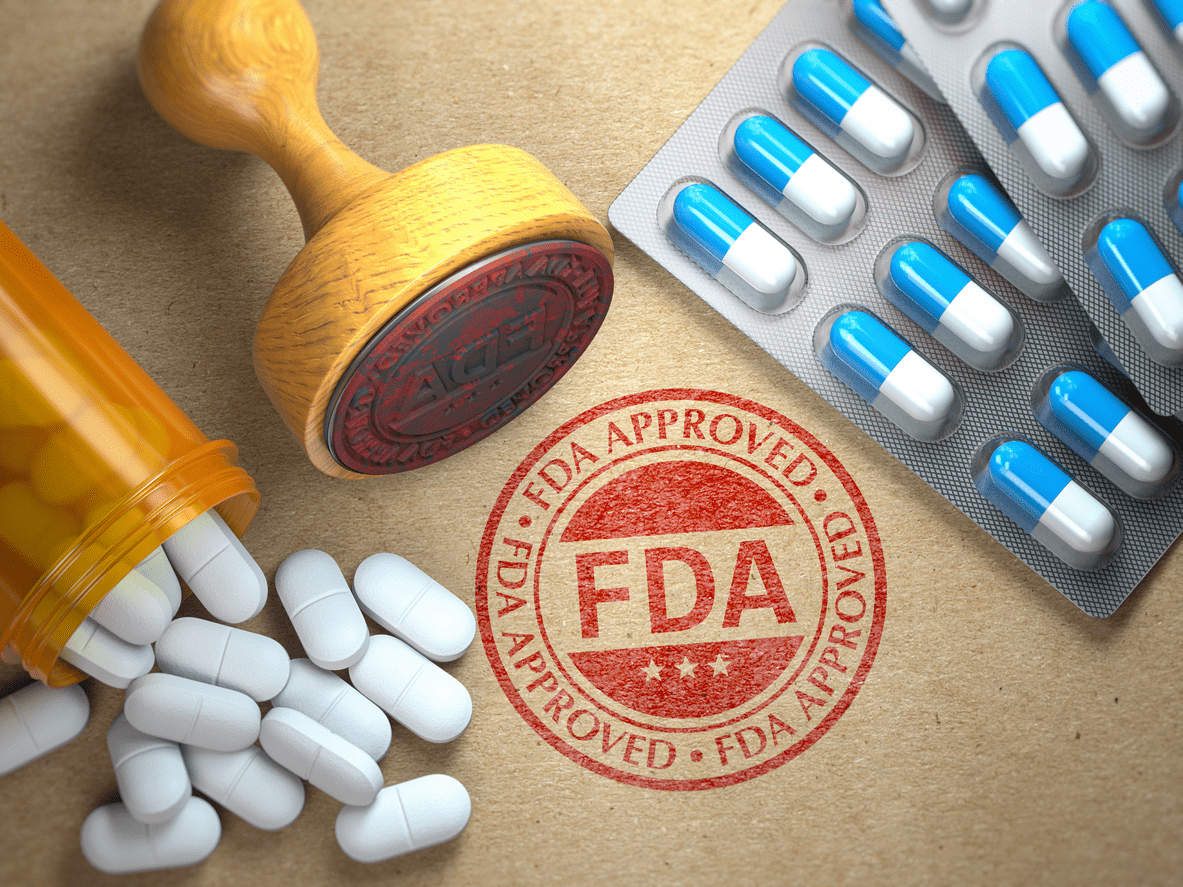In the world of pharmaceuticals, getting a drug approved by the U.S. Food and Drug Administration (FDA) is a key step before it can be made available to the public.
In this article you will learn about:
The FDA plays a vital role in ensuring the safety and efficacy of medications, and its approval process is thorough and rigorous.
In this comprehensive guide, we will explore the journey a drug takes from discovery to FDA approval, with a focus on the different stages, requirements, and considerations involved.
Understanding the FDA Approval Process
The FDA drug approval process consists of several key stages that biotech and pharmaceutical companies must navigate to bring a new drug to market.
These stages include discovery/concept, preclinical research, clinical research, FDA review, and FDA post-market safety monitoring [1].
Let’s delve into each of these stages to gain a better understanding.
Discovery/Concept Stage
The journey to FDA approval begins with the discovery or concept stage.
During this stage, pharmaceutical companies conduct extensive research to identify potential candidates for new drugs.
Scientists explore various avenues, such as studying disease mechanisms, conducting laboratory tests, and exploring existing drug compounds.
This stage sets the foundation for further development and testing.
Preclinical Research Stage
Once a potential drug candidate is identified, it undergoes preclinical research.
This stage involves laboratory testing and animal studies to evaluate the drug’s safety, effectiveness, and potential side effects.
Scientists conduct comprehensive experiments to understand how the drug interacts with biological systems and to gather essential data for the next stage.
Clinical Research Stage
The clinical research stage is a critical phase in the FDA approval process.
It involves conducting clinical trials in humans to evaluate the drug’s safety and effectiveness.
Clinical trials are carefully designed studies that involve participants who meet specific criteria.
These trials are conducted in phases, starting with small groups of healthy individuals and gradually progressing to larger groups of patients with the target condition.
Clinical trials collect data on the drug’s efficacy, potential side effects, dosage requirements, and any interactions with other medications.
They are closely monitored by researchers, physicians, and ethics committees to ensure participant safety and adherence to ethical guidelines.
FDA Review
After completing the clinical research stage, pharmaceutical companies submit a new drug application (NDA) to the FDA.
The NDA contains comprehensive data from preclinical and clinical studies, manufacturing information, labeling details, and proposed usage guidelines.
The FDA conducts a thorough review of the NDA, examining the research data, safety profile, manufacturing processes, and proposed labeling.
FDA physicians and scientists evaluate the drug’s benefits compared to its known risks and determine if it can be manufactured to ensure quality.
The FDA does not conduct its own testing but assesses the data provided by the pharmaceutical company.
FDA Post-Market Safety Monitoring
Once a drug receives FDA approval and enters the market, the FDA continues its oversight through post-market safety monitoring.
The FDA actively monitors for any adverse events, side effects, or safety concerns associated with the drug.
Manufacturers are required to report any new information about the drug’s safety and efficacy, and the FDA may take regulatory action if necessary to protect public health.
Generic Drugs and the FDA Approval Process
In addition to the approval process for new drugs, the FDA also oversees the approval of generic drugs.
Generic drugs are medications that contain the same active pharmaceutical ingredient as a brand-name drug but are sold under a different name.
The FDA ensures that generic drugs meet the same strict standards for safety, efficacy, and quality as their brand-name counterparts.
To gain FDA approval, generic drug manufacturers must submit an Abbreviated New Drug Application (ANDA).
Unlike the rigorous clinical trials required for brand-name drugs, generic drugs do not need to repeat these studies.
Instead, they must demonstrate that their product is bioequivalent to the brand-name drug, meaning it delivers the same amount of active ingredient to the body at the same rate.
Generic drugs play a vital role in providing more affordable options for patients.
They undergo a rigorous approval process to ensure their safety and effectiveness, allowing patients to access quality medications at a lower cost.
Challenges and Criticisms of the FDA Approval Process
While the FDA’s drug approval process is designed to prioritize patient safety, it has faced criticism and challenges over the years.
One criticism relates to the approval of generic drugs based on similarity to previously approved drugs, even if those drugs have known safety concerns.
Critics argue that this approach may overlook potential risks associated with the medication.
It is important to note that FDA approval does not guarantee absolute safety.
The FDA continuously monitors drugs and medical devices on the market and issues recalls when safety concerns arise.
In some cases, drugs or devices may be approved quickly but later found to have safety issues. The FDA’s efforts to minimize these risks are ongoing, but challenges can still arise.
The Importance of FDA Approval
FDA approval is a fundamental step in ensuring the safety and efficacy of medications.
It provides assurance to healthcare providers and patients that a drug has undergone rigorous testing and evaluation before entering the market.
The FDA’s oversight helps protect public health by identifying and addressing safety concerns and promoting the availability of effective treatments.
Patients should always consult with their healthcare providers about any medications they are taking or considering taking.
Healthcare providers can provide valuable guidance and insights to help patients make informed decisions regarding their medications.
Conclusion
The FDA drug approval process is a comprehensive and rigorous journey that pharmaceutical companies must undertake to bring new drugs to market.
From the early stages of discovery to the final FDA review and post-market monitoring, the process prioritizes patient safety and the availability of effective treatments.
FDA approval provides confidence in the quality and reliability of medications, ensuring that patients have access to safe and effective treatments for their healthcare needs.
References:









